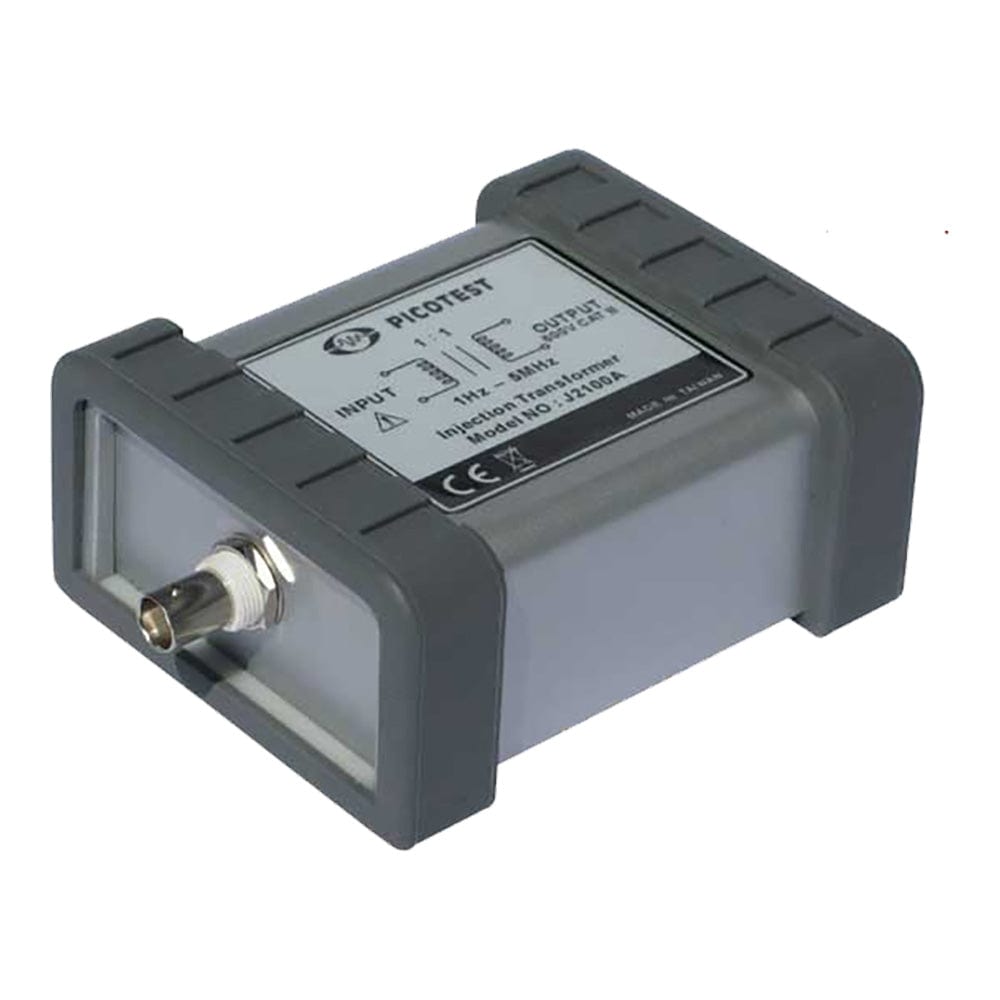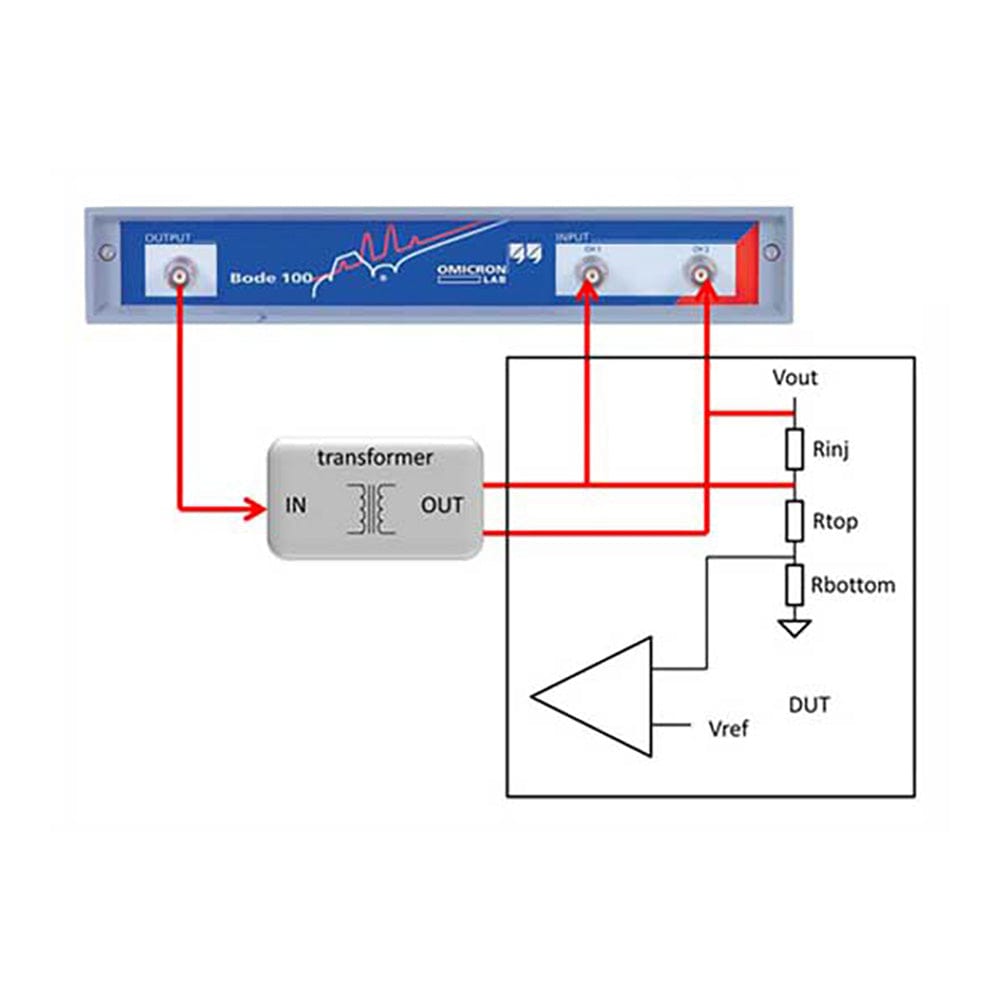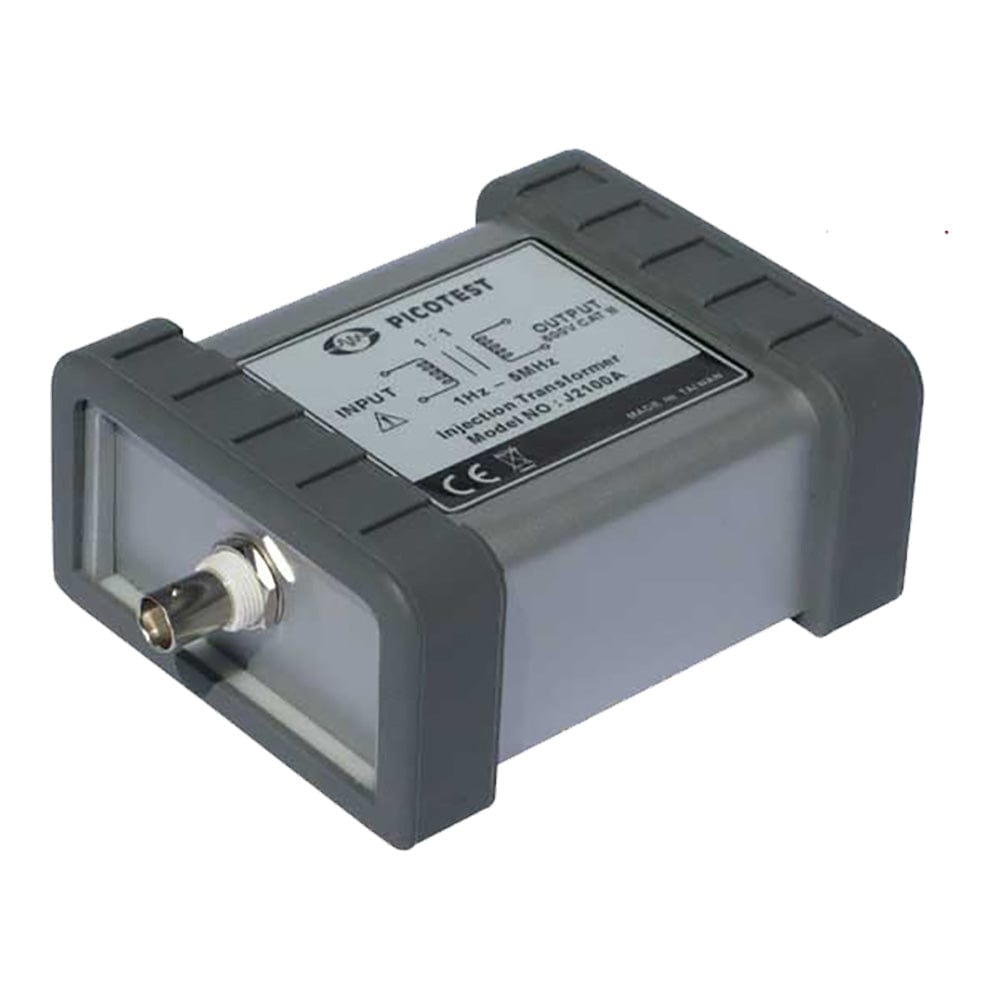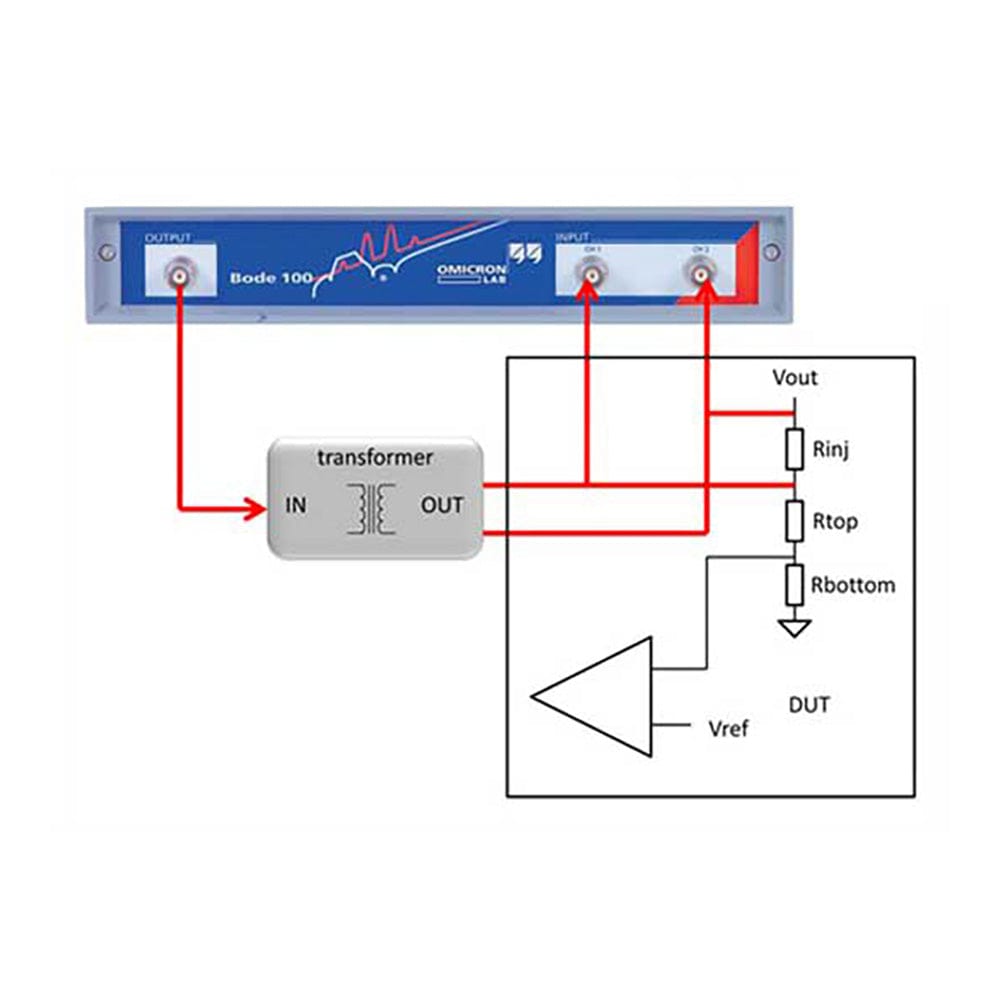

Key Features
Overview
Introducing the J2100A Injection Transformer 1Hz~5MHz
Unlock Precision and Versatility
Discover a new level of measurement accuracy and flexibility with the revolutionary J2100A Injection Transformer. Engineered to enhance your measurement capabilities, this transformer is your ultimate solution for a wide range of applications.
Key Features at a Glance
Wide Frequency Range
Experience the power of frequencies ranging from 1Hz to 5MHz. From PFC regulators to power supplies, this transformer is designed to handle it all.
PFC Regulator Excellence
With support for 1Hz frequencies, the J2100A is optimized for PFC regulators, ensuring precise measurements and reliable results.
High-Frequency Performance
Take advantage of the transformer's upper limit of 5MHz, guaranteeing exceptional precision for demanding power supply and regulator tasks.
Expanded Measurement Range
Covering an impressive 23 octave range, the J2100A empowers you to tackle diverse measurement scenarios with confidence.
Uncompromising Accuracy
Experience minimal distortion and superior precision, setting a new standard for measurement reliability.
Optimized Termination
Featuring a 5 Ohm termination, the transformer ensures minimal disruption to the measurement loop, preserving data integrity at all times.
Small Signal Assurance
Rest easy knowing that small signal measurements are guaranteed with the included attenuation feature, delivering accurate results every time.
Elevate Your Measurement Game
Take your measurements to the next level with the J2100A Injection Transformer. Whether you're a seasoned professional or a newcomer to precision measurement, this transformer is your gateway to unmatched accuracy and reliability. Don't miss out—secure yours today and experience the future of precise measurements!
Downloads
Why Engineers Choose The Picotest J2100A Injection Transformer 1Hz - 5MHz
Reliable Low-Frequency Coverage
Minimal Loop Perturbation
Fits Existing Setups
The injection transformer is presently the prevalent method for connecting the network analyzer to the circuit being tested, and is primarily used for control loop stability measurements. The goal of the transformer is to inject a signal into the control loop being measured, without impacting the performance of the loop. In order to accomplish this to a reasonable degree, The transformer is isolated and therefore is capable of floating on a high voltage, such as a Power Factor Corrector (PFC), which is often close to 400VDC. Measuring voltages that exceed the voltage rating of the FRA inputs require attenuation probes.
The usable bandwidth of an injection transformer is generally significantly greater than the 3dB frequency limits. This is because the transformer itself is outside of the measurement, leading many to incorrectly believe that the transformer is a non-critical element.
The bandwidth of the transformer is strongly related to the terminating impedance. The most network analyzers provide a 50 Ohm oscillator source impedance. Assuming this impedance the optimal termination resistor is 5 Ohms. This significantly attenuates the injection signal, which is generally beneficial, as a common error in Bode measurements is using a signal which is too large, and therefore not a small signal measurement. An added benefit of this low value is that it can generally be left in circuit at all times, simplifying the connection to the network analyzer without appreciably impacting the output voltage of the circuit being tested.
.jpg)
Frequently Asked Questions
Have a Question?
-
What’s the practical advantage of built-in attenuation?
It helps ensure small-signal conditions, reducing non-linear effects that can distort gain/phase results.
-
Is there a higher-frequency transformer in the same series?
Yes. The J2101A extends usable frequency up to 45 MHz.
-
When should I consider the J2110A solid-state injector?
When DC injection is required, or when bandwidth beyond transformer limits is needed. See the J2110A.
-
Is it compatible with oscilloscopes offering FRA options?
Yes. Many scopes with FRA/control-loop options support transformer injection; J2100A also pairs well with dedicated VNAs like the Bode 100 VNA.
-
Can J2100A be used on high-voltage rails?
Yes, within its insulation category and limits so it can float during tests on offline supplies when used correctly with your analyser.
-
Does transformer bandwidth affect accuracy of the Bode plot?
Reduced transformer bandwidth mainly reduces injected signal level; with adequate SNR the accuracy of the Bode plot is preserved.
-
Why is the 5 Ω termination important?
It matches a 50 Ω source to minimise loop loading and, with attenuation, helps maintain small-signal injection for accurate Bode plots.
-
How do I choose between J2100A, J2101A and J2110A?
Use J2100A for 1 Hz–5 MHz, J2101A for 10 Hz–45 MHz, and the J2110A when you need DC injection or wider bandwidth.
-
What measurements is the J2100A designed for?
Loop gain, phase margin and crossover analysis using a VNA/FRA with transformer-injection. Works well with the OMICRON-Lab Bode 100


